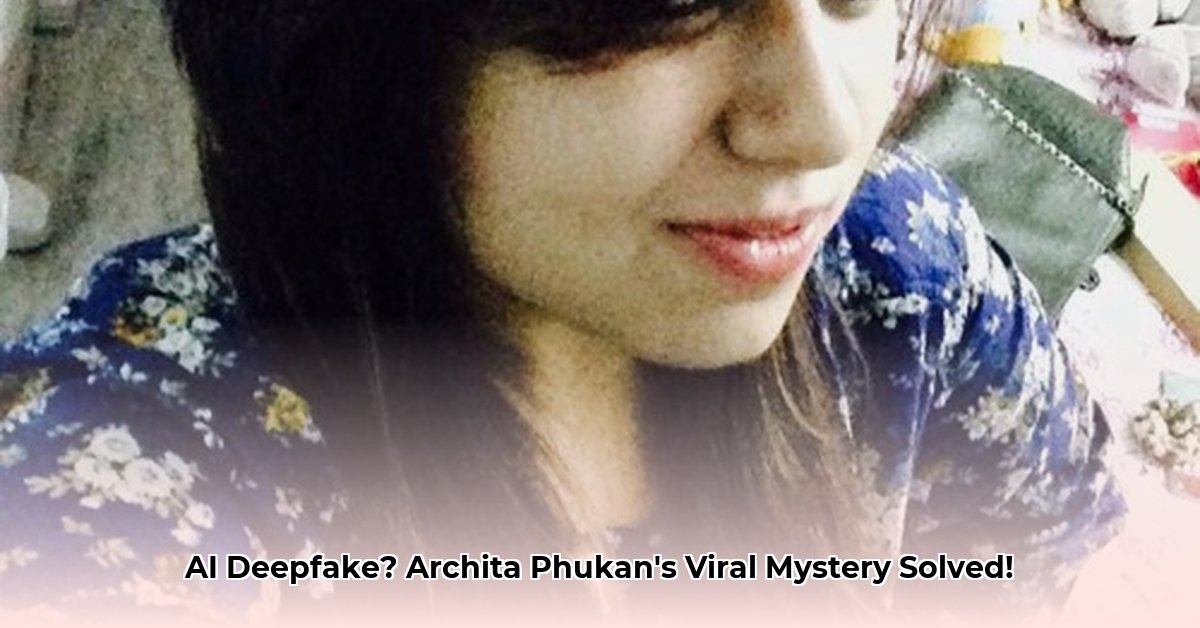
Archita Phukan: A Viral Sensation Under Scrutiny
The meteoric rise of Archita Phukan, also known as "Babydoll Archi," a social media influencer from Assam, has captivated millions. Her engaging videos and seemingly idyllic lifestyle have garnered a massive following. However, a shadow of doubt hangs over her online persona, prompting intense scrutiny and raising concerns about the authenticity of her content. The central question remains: is Archita Phukan a genuine influencer, or is AI-generated content playing a significant role in her online presence? This investigation delves into the conflicting evidence, exploring the implications for the influencer industry and the broader digital landscape.
Confirmed Facts: The Archita Phukan Phenomenon
Archita Phukan undeniably boasts a substantial online following across various platforms. Her videos consistently garner millions of views, and her charitable work, while details remain sparse, has been publicly acknowledged. This level of engagement suggests a degree of genuine connection with her audience, potentially, indicating an authentic component to her influence. However, the speed and scale of her rise—a phenomenon characteristic of viral content— also fuels skepticism.
Disputed Claims: Inconsistencies and Allegations
Concerns regarding the authenticity of Archita Phukan's online persona have been raised by several sources, most notably the Assam-focused Instagram account, "Just Assam Things." This account has highlighted several visual discrepancies: alleged inconsistencies in background elements across different videos, subtle shifts in facial features, and other detail irregularities. These inconsistencies, some argue, hint at potential digital manipulation or even the use of advanced deepfake technology – AI software capable of producing realistic yet synthetic videos. Is it possible that "Babydoll Archi" is not who she appears to be?
Investigative Analysis: Examining the Evidence
The visual inconsistencies highlighted by "Just Assam Things" and other sources require meticulous analysis. While some argue that minor discrepancies are simply the result of common video editing techniques, others suggest the possibility of sophisticated deepfake manipulation. The complexity of modern image editing software makes definitive conclusions challenging. A thorough forensic analysis of the videos and images – a task beyond the scope of this article — would be necessary to conclusively confirm or refute claims of AI-generated content. The lack of definitive expert opinion on publicly available evidence currently limits solid conclusions. The challenge lies in distinguishing between genuine editing and advanced digital fabrication.
Currently, the available evidence doesn't present conclusive proof, either way. The lack of transparent and verifiable information about Archita's real-life identity only compounds the mystery.
The Impact and Implications: A Digital Identity Crisis
The Archita Phukan case highlights the growing problem of AI-generated content and its implications for both influencers and their audiences. Brands collaborating with influencers need robust verification processes to avoid associating with potentially fraudulent personas. The erosion of trust in online identities poses a significant challenge for brands and audiences alike. For audiences, developing critical thinking skills to discern real content from AI-generated media is more than ever, crucial.
Conclusion: Unanswered Questions Remain
The mystery surrounding Archita Phukan's online persona is far from solved. While her impressive online reach is undeniable, concerns about the authenticity of her content persist. A definitive conclusion requires forensic analysis by digital forensics experts and a thorough investigation into her offline identity. This case serves as a stark reminder of the challenges in navigating the increasingly complex and ambiguous digital landscape, demanding both stronger verification protocols and increased media literacy amongst consumers. The implications extend far beyond a single influencer, touching upon the future of online authenticity, brand trust, and the very nature of digital identity.
Key Takeaways:
- The Archita Phukan case highlights the challenges of verifying online identities in the age of AI.
- The potential for AI-generated content in influencer marketing raises significant ethical concerns for brands.
- Enhanced media literacy and critical thinking skills are crucial for navigating the complexities of digital information.